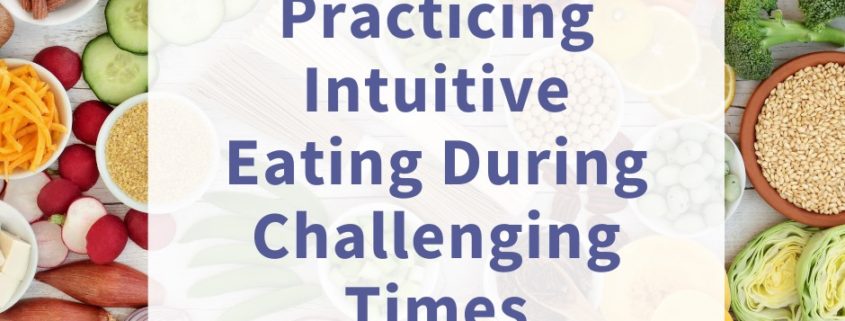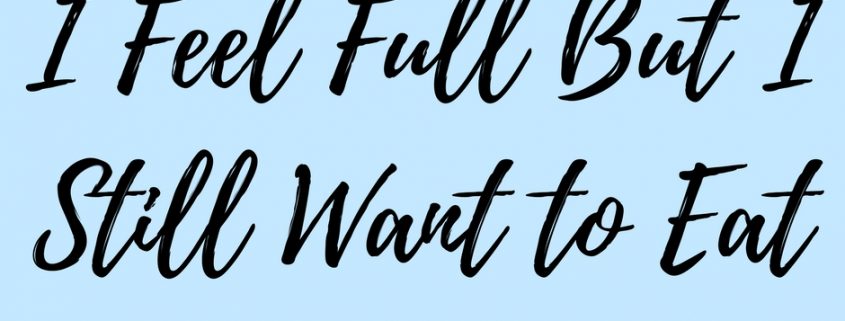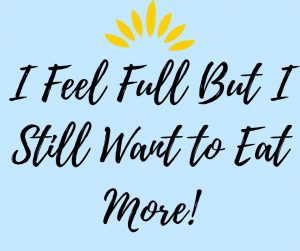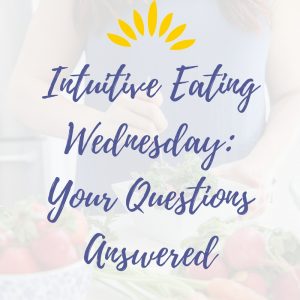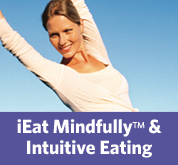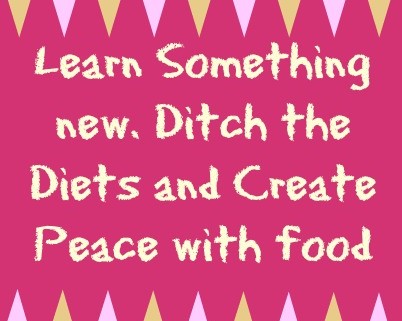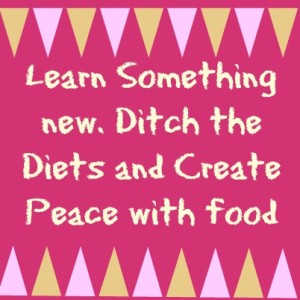Practicing Intuitive Eating During Challenging Times
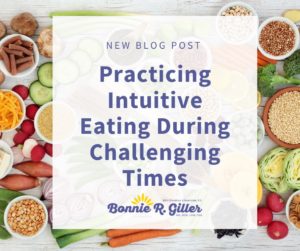 We all experience challenges within our lifetime. These challenges often make us stronger. Yet, while we are in the midst of the challenge, we often feel the very opposite of strong.
We all experience challenges within our lifetime. These challenges often make us stronger. Yet, while we are in the midst of the challenge, we often feel the very opposite of strong.
If we stop and think for a moment what those challenges are, we see there are many. Divorce, job loss, relationship turmoil, and illness to name a few. Everyone reacts and acts differently in these situations. But what I’d like you to think about is how does it affect your Intuitive Eating practice?
If you’re just at the beginning of your Intuitive Eating journey or you’re a seasoned Intuitive Eater, when life throws us curve balls, it can impact how intuitive we are in our eating and food decisions. Suddenly it doesn’t seem so important anymore. You might be thinking:
- “I don’t care, I’m just going to go through the drive -thru”, why does it matter?”
- “I deserve to eat xxx, I’m so sad.”
- “I can’t deal with paying attention to my eating during this time, I just don’t have the head space.”
I get it! Sometimes when what you are going through is so overwhelming, it’s easier to move away from being present, to distract yourself from what’s going on around you, and to just zone out.
But how do you feel afterwards? How does being distracted and not paying attention to what you need impact how you handle this curve ball? Most of the time, it makes it more difficult.
Here are 3 ways to stay true to your Intuitive Eating journey during challenging times:
1.Engage in self-care: Sit down and brainstorm how you can take the best care of yourself during this time. What is it that you need? Connection with others? Time to relax and unwind? Boundary setting? Spiritual connection? Movement? Once you tap into what you need, make a plan and block out time each day to meet those needs.
2.Practice self-compassion: Ask yourself how would you speak and/or what would you do for a friend who was experiencing this challenge. Then extend that same compassion to yourself. This is the hardest thing to do if you’ve never practiced self-compassion. Being kind and gentle with yourself has been shown to decrease anxiety and depression and enables you to be more present with yourself in a soothing way.
3.Nourish yourself consistently: Your appetite might be affected when you are under stress. For some, they turn to food to numb out and to protect themselves from feeling pain. For others, they turn away from food as the stress response decreases appetite and they just “don’t feel like eating”.
It’s most important in these situations to consider nourishment as a self-care act. Even though your hunger signals might be blunted during times of stress, you still need to eat. Remember, the Intuitive Eating principle of Honor Your Hunger is NOT A RULE. There are times when we need to eat, even in the absence of hunger. And this is one of those times.
Consider setting an alarm to ring at various internals during the day as a reminder to eat. When things settle down, you will likely see that your hunger signals have returned.
There are always going to be difficult times. Taking the best care of yourself during these times will help you get through it.
If you are experiencing something tough going on in your life now, let’s connect to see how I can support you.
Thinking of you…

